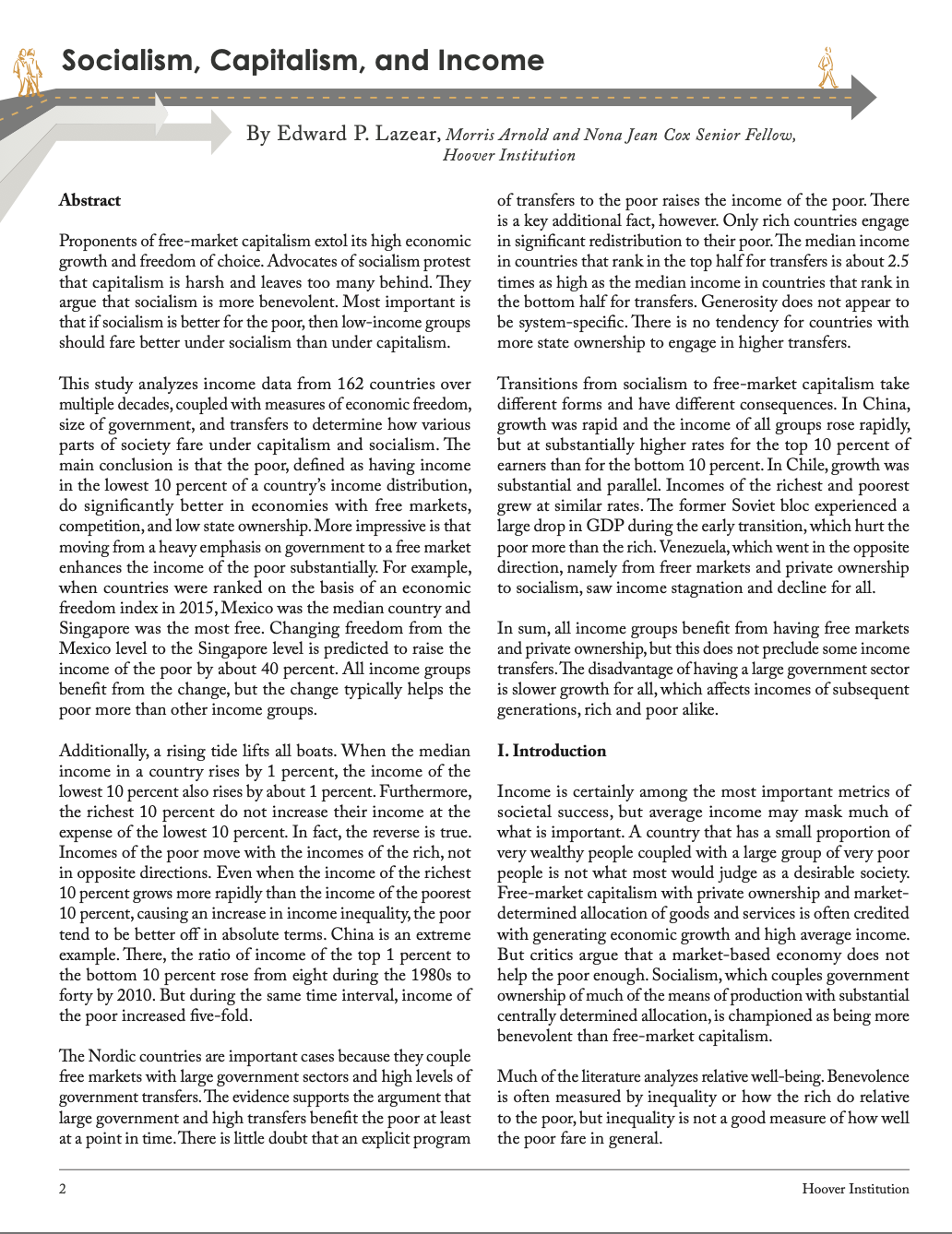Featured Publication
Socialism, Capitalism, and Income
by Edward P. Lazear
 Proponents of free-market capitalism extol its high economic growth and freedom of choice. Advocates of socialism protest that capitalism is harsh and leaves too many behind. They argue that socialism is more benevolent. Most important is that if socialism is better for the poor, then low-income groups should fare better under socialism than under capitalism.
Proponents of free-market capitalism extol its high economic growth and freedom of choice. Advocates of socialism protest that capitalism is harsh and leaves too many behind. They argue that socialism is more benevolent. Most important is that if socialism is better for the poor, then low-income groups should fare better under socialism than under capitalism.
This study analyzes income data from 162 countries over multiple decades, coupled with measures of economic freedom, size of government, and transfers to determine how various parts of society fare under capitalism and socialism. The main conclusion is that the poor, defined as having income in the lowest 10 percent of a country’s income distribution, do significantly better in economies with free markets, competition, and low state ownership. More impressive is that moving from a heavy emphasis on government to a free market enhances the income of the poor substantially. For example, when countries were ranked on the basis of an economic freedom index in 2015, Mexico was the median country and Singapore was the most free. Changing freedom from the Mexico level to the Singapore level is predicted to raise the income of the poor by about 40 percent. All income groups benefit from the change, but the change typically helps the poor more than other income groups.
To read the rest of the essay, click here.
